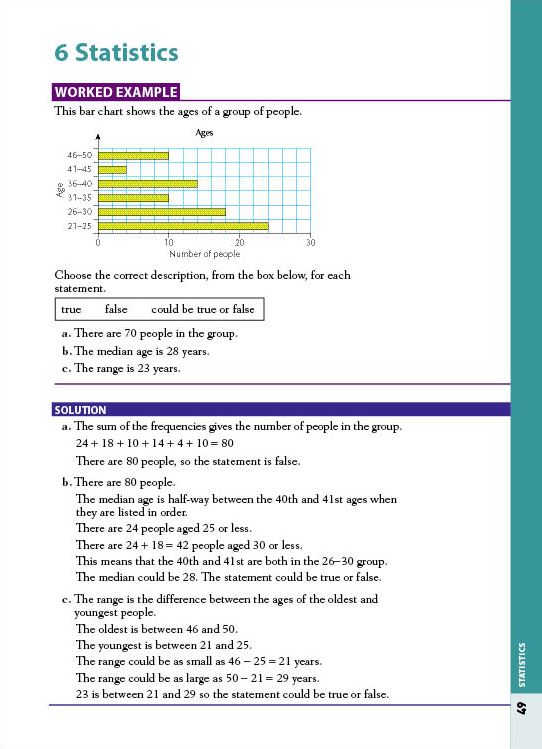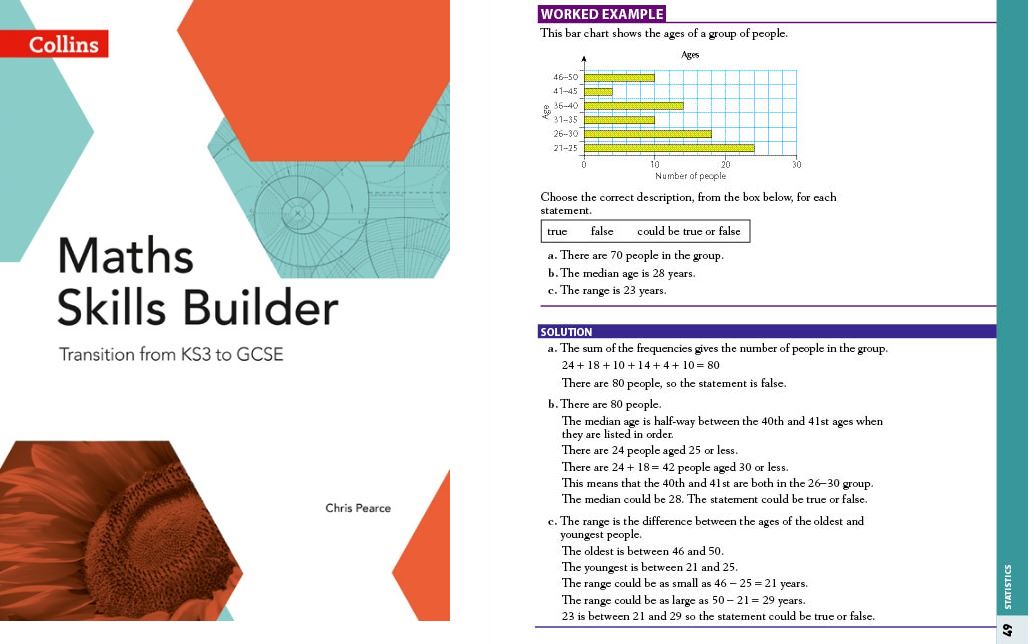Here are some mathematics learning objectives. The question is this. Are they taken from the programme of study for key stage 3 or the GCSE subject content and assessment objectives?
Define percentage as “number of parts per hundred”; interpret percentages and percentage changes as a fraction or a decimal, interpret these multiplicatively; express one quantity as a percentage of another; solve problems involving percentage change, including percentage increase, percentage decrease and original value problems
The answer: they are identical in both, with some minor differences in punctuation.
This is not a unique occurrence, a lot of the key stage 3 objectives can also be found in the GCSE subject content. Of course there are objectives in the latter that develop the subject further, but it does raise questions about what should be taught in key stage 4. If a student reaches the end of key stage 3 with a good understanding of the mathematics involved, is there much left for them to do in key stage 4? If the progress in key stage 3 has been good the student is already familiar with much of the GCSE material.
The answer, I think, lies in the aims which underpin the national curriculum which are about fluency, reasoning mathematically and using mathematics to solve problems. One of the aims changing the mathematics curriculum (yet again!) is to address a perceived problem: students are leaving with good mathematics grades but they still cannot “do” mathematics. They cannot see it’s relevance or apply it with confidence in their working environment and everyday life. An important part of the GCSE course will involve teaching students to apply the subject knowledge they already have in more complex and sophisticated ways.
For example, on the radio this morning, as I was preparing to write this blog, there was a statement that the annual number of train journeys since privatisation of the railways had increased from 750 million to 1.6 billion. How many of our students who completed their GCSE last summer will have a feel for what that means? Will they be confused by the mixture of millions and billions? Will they be able to confidently assert that the number has approximately doubled, without a lot of head scratching and writing out the numbers in full?
We need to bear in mind the two strands throughout key stage 3 and the subsequent GCSE course. Students will gradually acquire subject knowledge of the sort outlined in the bullet point above and they must also be given opportunities to apply that knowledge in increasingly complex situations. One would like a student to be able to take those numbers from the radio broadcast, appreciate that the percentage change is the important thing here and work out that the increase is about 110%. One hopes they also note the degree of accuracy to which those figures are given and hence the appropriate degree of accuracy for the answer.
One way to develop the skills needed in applying mathematics is to give students questions that go beyond the routine and repetitive. Questions which require them to think about what mathematics is will help them to become more confident about trying things out and seeing what works and what doesn’t, worrying less about making mistakes. The emphasis needs to shift from getting the correct answer to appreciating the process by which we reach it.
The new Maths Skills Builder has been written with these requirements in mind.
The book is aimed at students who have completed the key stage 3 programme and are preparing to move on to GCSE. The questions are all based on the KS3 programme of study but they aim to make students think more and apply their skills in unfamiliar situations. The skills should be in place, here is an opportunity to apply them and to this end we have tried to avoid the more “routine” and predictable type of question. We know that when students take their GCSE they will be given problems that test their fluency and ability to reason. The questions in the Maths Skills Builder will help to prepare them for this change of emphasis as they move from one key stage to the next.
Chris Pearce




